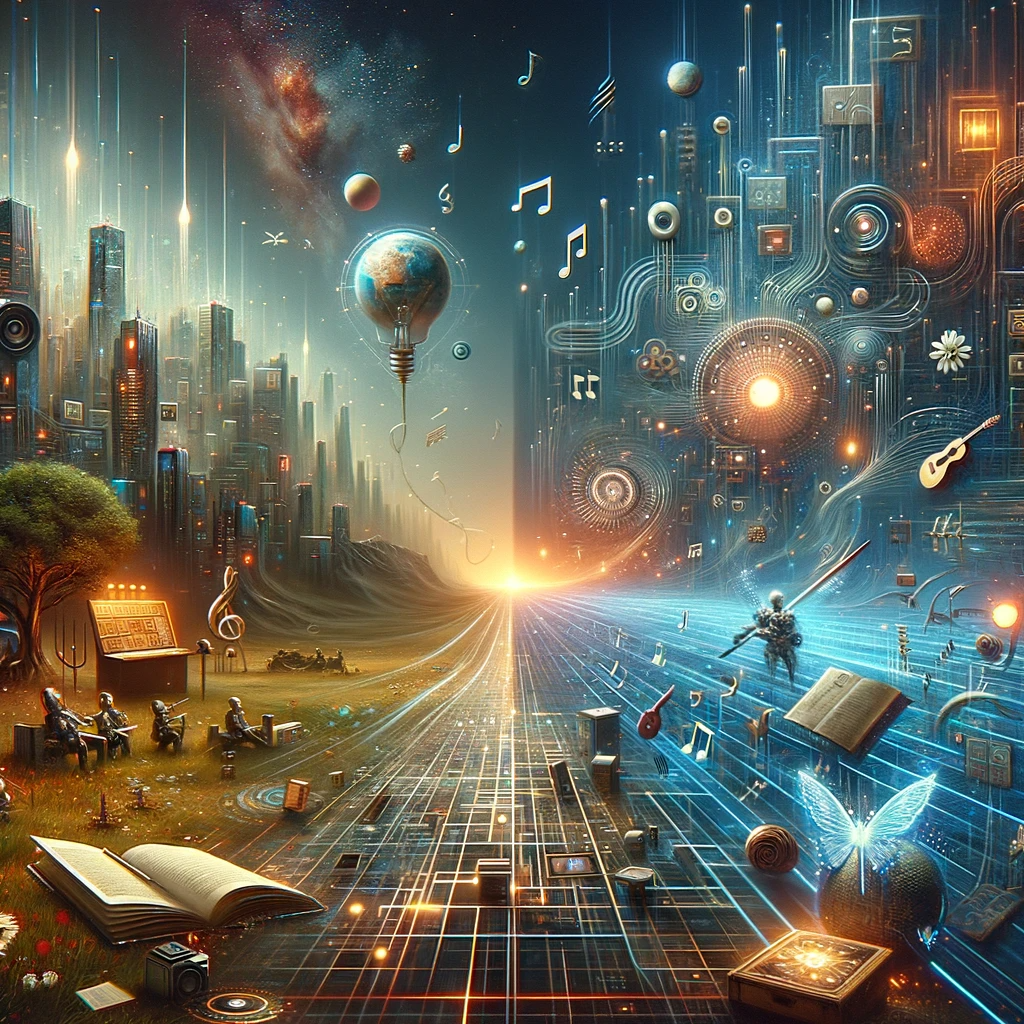Living in an age where algorithms dictate much of our cultural consumption, Kyle Chayka’s “Filterworld: How Algorithms Flattened Culture” has struck a chord with me. As someone who has navigated the realms of technology and culture, Chayka’s exploration is not only insightful but also alarmingly relatable.
The Evolution of Social Media and its Cultural Impact
Reflecting on Chayka’s observations, the transformation of social media feeds from chronological to algorithmic has fundamentally altered our interaction with culture. This shift, noticeable around 2015, marked a transition from active engagement to passive consumption. We are no longer just participants in the cultural sphere; we are now recipients of a pre-filtered cultural diet, determined not by human curiosity but by calculated algorithms.
In the algorithm’s shadow, our cultural landscape is not just shaped; it’s homogenized, leaving little room for the eclectic and the unordinary.
Reflects the impact of algorithms on diminishing cultural diversity
The Homogenization of Culture
Chayka’s argument that algorithms have flattened culture resonates deeply. Creators, whether they are musicians, artists, or writers, find themselves molding their work to fit the algorithmic mold. This results in a cultural landscape that is increasingly uniform and predictable. The unique, eclectic, and sometimes challenging aspects of art and culture are gradually being eclipsed by what is deemed algorithmically palatable.
The Irony of Digital Diversity
Chayka also touches upon the irony of the digital age. While it seems to have dismantled traditional gatekeepers, it has created a new form of gatekeeping based on algorithmic appeal. This pseudo-diversity is a facade, masking an underlying uniformity, much like the globally replicated aesthetic of hipster coffee shops Chayka describes. The digital space, which promised boundless diversity, is ironically leading us towards cultural homogeneity.
What we like and what we’re led to like are becoming indistinguishable in the age of algorithmic influence.
Points to the blurring lines between individual preferences and algorithm-driven suggestions
Personal Taste in the Algorithm Era
The exploration of personal taste in “Filterworld” is particularly poignant. Chayka prompts us to question the authenticity of our preferences in an era where algorithms subtly influence our choices. This manipulation extends beyond our cultural choices into aspects of our daily lives, from fashion to food, shaping our identity in ways we might not even realize.
Creators now dance to the tune of algorithms, their art unconsciously sculpted by the invisible hand of digital dictate.
Discusses how artists and creators are influenced by the need to appeal to algorithms.
Challenges and Opportunities in the Digital Age
Chayka’s book is not just a critique but also a reflection on the challenges and opportunities presented by the digital age. While the internet has democratized the creation and distribution of content, it has also led to a standardization of tastes and preferences. This raises critical questions about the future of creativity and innovation in an algorithm-dominated landscape.
We must navigate the digital maze not as passive consumers but as active seekers, reclaiming the authenticity of our cultural experience
Encourages active engagement in cultural consumption to counter passive algorithmic influence
Towards Mindful Cultural Consumption
Echoing Chayka, I advocate for a more conscious approach to cultural consumption. We must recognize the invisible digital forces shaping our preferences and strive to maintain the richness of our individual and collective cultural experiences. It’s about rediscovering the joy of serendipitous discovery and nurturing a culture that values authenticity and diversity over algorithmic popularity.
The Future of Art and Culture in the Digital Age
As we stand at this crossroads, the future of art and culture in the digital age remains uncertain. Will we continue down the path of algorithmic conformity, or will we carve out spaces for genuine creativity and diverse cultural expression? The answers to these questions will shape not only our cultural landscape but also the very fabric of our societal and personal identities.
As we stand at the crossroads of the digital revolution, the question remains – will our cultural narrative be authored by human diversity or written by algorithmic monotony?
Contemplates the future direction of culture in the context of digital influence
Concluding Thoughts
“Filterworld” is more than just a book; it’s a mirror reflecting our current cultural predicament. As we navigate this algorithm-driven world, we must remember that our cultural choices should reflect our individuality and collective human experience, not just the outcomes of a digital algorithm. In reclaiming our cultural agency, we can hope to preserve and enrich the diversity of our cultural landscape for generations to come.




